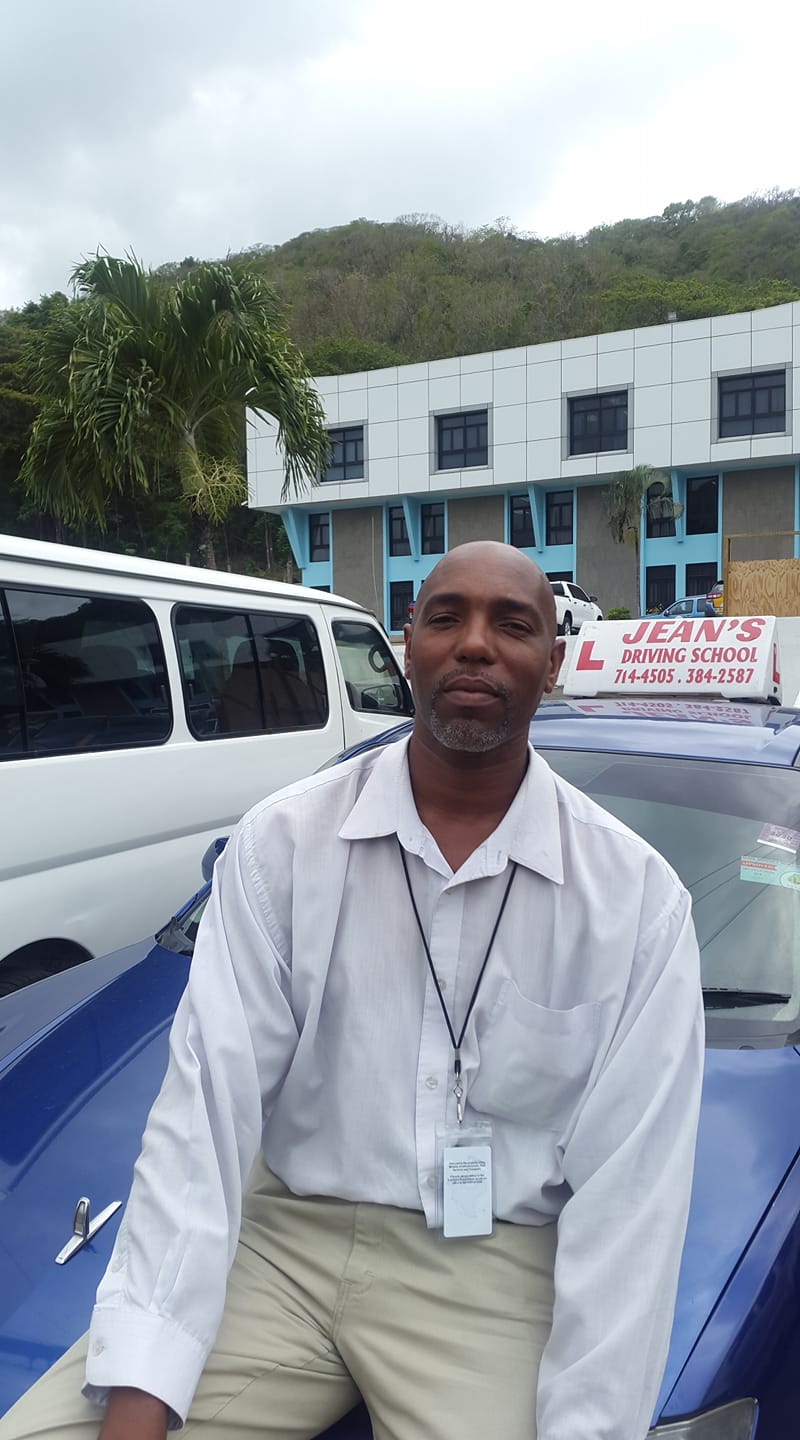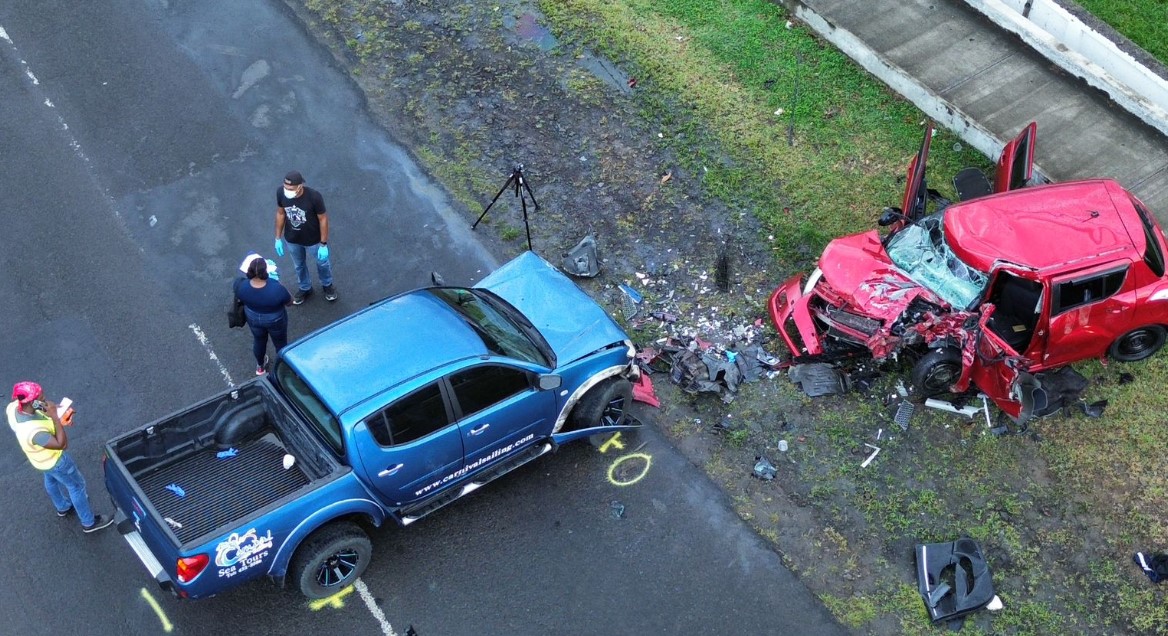The tragic death of four-year-old Rikki Samuel along the Laborie-Vieux Fort Highway on October 25 once again thrust the issue of road safety into the national spotlight. The collision, which involved three minibuses, left a scene of carnage as police and emergency personnel scrambled to transport the 11 injured to nearby medical facilities. It was yet another reminder of a growing pattern of serious and often “preventable” crashes on Saint Lucia’s roads.
This year, and with troubling frequency in recent months, a spate of serious vehicular accidents has underscored a growing concern: a culture of haste that continues to claim lives and devastate families. Many of these incidents have been linked to excessive speeding and reckless driving.
According to the Royal Saint Lucia Police Force’s Islandwide Crime Summary, 1,591 traffic accidents were recorded between January 1 and October 29. Twelve of those were fatal. While this marks a 40% drop in road deaths compared to the 20 recorded during the same period last year, authorities caution that key risk factors remain stubbornly entrenched.
The report highlights “a spike in road use, alcohol consumption, and nighttime travel,” all of which, police say, “raise the risk of collisions and pedestrian injuries”.
While police remain measured in their analysis, the president of the National Association of Driving Schools (NADS), Kingson Jean, was far more blunt in his assessment of the situation in an interview with St. Lucia Times. The career driving instructor attributes the problem primarily to speed, indiscipline among drivers and a lack of enforcement of traffic laws.

“I’m almost tired of talking about road collisions,” he said. “It’s basically speed; the faster you drive, the less time you have… and the less time you have, the fewer options you have. So if we drive slower, we have more options.”
While some point to what they describe as poor road infrastructure and other factors, Jean places responsibility squarely on drivers.
“They are caused by either the driver’s omission or permission. The driver actually did something he was not supposed to do, or did not do something he was supposed to do and that’s why you’re having a crash on the road. So there is a cause factor, and it’s because of the driver,” Jean said.
All licensed drivers in Saint Lucia would have once gone through a driving school, passing both theory and practical exams that emphasise adherence to speed limits, traffic signs, and road safety regulations. So why, then, are these lessons seemingly forgotten once drivers graduate from the system?
“In Saint Lucia, we have a mentality of monkey see, monkey do,” Jean said. “New drivers are taught properly and meet the standard, but once they see experienced drivers breaking the rules and getting away with it, they follow. For example, if a sign says no right turn, but you see someone always taking it, you’ll do the same. That’s why I say enforcement is a serious problem.”
When Jean says “enforcement is a serious problem”, he’s pointing his finger at the police, who he believes can do more to hold reckless drivers accountable.
However, up to October 29, police had issued a total of 13,790 traffic tickets, compared to 5,711 for the same period in 2024, a 141% increase. The police hierarchy attributes this rise to a more proactive enforcement approach, which they say has contributed to the reduction in road fatalities. These tickets span a range of traffic violations.
But for Jean, the issue is not ticketing but prosecution.
“When they come to a scene of a collision or accident, they have to be ready to bring the case to court. So if somebody is guilty of infringing the rules and regulations of the road, you have to bring them to court. And so that driver doesn’t learn his lesson. They keep on doing the same thing over and over again. I blame the police for that one,” he said.

The St. Lucia Times reached out to the lead Inspector at the Traffic Department for a response to Jean’s claims, but none was received before press time.
However, Police Commissioner Verne Garde has maintained that the RSLPF takes traffic offences seriously, noting that the 141% increase in tickets issued this year reflects the force’s strengthened commitment to road safety enforcement.
In the wake of Rikki Samuel’s death, Prime Minister Philip J. Pierre used the October 27 Pre-Cabinet Press Briefing to issue an appeal to drivers.
“I want to say one thing to the drivers in this country, and I want us to also stop making excuses for recklessness,” he said. “I am not a judge, nor am I the jury or even the police, but I think we drive too recklessly and at speeds that are not conducive to the roads we have in this country.”
Pierre’s remarks echoed the growing national frustration and grief that follow every fatal collision.





Can I bring up a point STLT …? What about holding more accountability for mechanics on this island as well! There are so many mechanics up, north especially getting away with such deceitful maJE and No accountability! It’s about time they have new licensing for legit professional mechanics bc they are gravely missing on this island with terrible vehicle maintenance repairs also an attributing to all these horrific accidents.